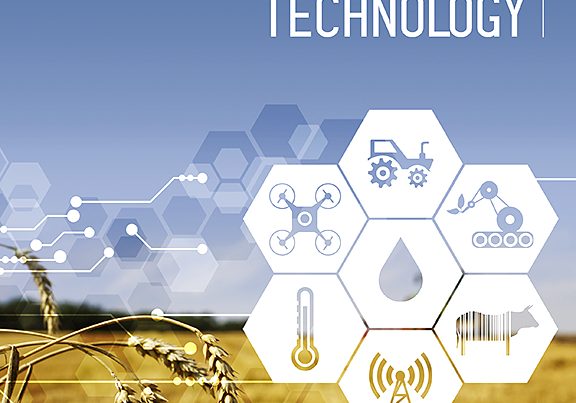Document type: article published in Sentient Media
Author: Björn Ólafsson
Preview: It's clear the vast majority of the world's agricultural land is devoted to farming animals en masse. According to Our World in Data, a whopping 77 percent of all global farmland is used for pasture, feed crops and factory farms. But it's not just land. The sheer number of animals slaughtered each year for food is also a staggering one - 165 million in the U.S. alone - a figure so massive that it eclipses the notion of an individual pig or chicken. And yet, scientists are beginning to study just that - the many ways in which farmed animals demonstrate that they are indeed unique individuals, complete with different personality traits and expressions. [...]
Preview: How Do We Measure Personalities in Animals?
[...] Research into unique animal personalities is still in its early days, but more and more studies are beginning to emerge. [...] One reason the field lagged is the lack of available research methods. Normal psychological measures used on humans - like surveys or behavioral assessments from friends or family - are obviously off the table. Animal researchers instead rely on assessments from caretakers, as well as behavioral observations. The first is more subjective - an animal keeper may rate a certain cow's desire to explore from 1 to 10 - while the latter is more objective - for example, giving a herd of cows ten minutes to roam a new field in order to measure how far they explored.Researchers now define an animal personality as any behavioral difference between two animals that is consistent across time and situation. [Even with this definition, research is limited. Investigations nearly always involve the presence of humans, who can invoke a natural fear response in animals that automatically changes their behavior and personality. This raises the question - do animals possess other personality traits when humans aren't around? Unfortunately, this has proven very difficult to answer. Michael Webster and Christian Rutz, both animal scientists, developed an acronym to wrestle with the thorny question of animal personalities: STRANGE (Social background, Trappability, Rearing history, Acclimation and habituation, Natural changes in responsiveness, Genetic makeup, and Experience). [...]Some critics say the research is inherently flawed because scientists are mapping human personality traits onto non-human animals, especially those non-human animals who are evolutionarily or biologically distinct from humans. [...]What's more - researching farmed animals presents a related dilemma - a chicken raised in captivity under unpleasant or cramped conditions is not going to have the same personality as if he or she were raised in a natural environment. So then, what aspects of their unique personalities might be lost or suppressed? At this point, researchers have more questions than answers.
What Do Personalities Look Like in Farmed Animals?
When it comes to farmed animals, so many of the variables are the same - on a single farm, animals usually lead identical lives. Cows tend to have stable personality traits throughout their existence, with the exception of during puberty. They're remarkably social animals, capable of remembering the faces of many species and even having best friends. They also like to play. Within a herd however, cows do differ greatly in their boldness, or willingness to explore. Some cows love diving into new fields while others hang back and prefer to keep to themselves. [...]Farmers Can Use Personality Research to Fuel Profits
As the field of animal personality has grown, especially in industry journals, a worrying pattern is emerging - studies are increasingly aimed at boosting farm productivity rather than animal welfare. Dairy cows are a common research subject, for instance. A recent study from the Journal of Dairy Science has shown that bold cows who enjoy exploring adapt better to automatic milking machines and nervous cows tend to produce less milk. Another study in the same journal found that alert and curious cows are more likely to eat more in milking stations. [...]The science of identifying personality traits empirically in a herd of animals is time-intensive, requiring multiple behavior assessments and even complex equipment. There are some farmers and scientists who'd like to avoid the question of individual animal personality altogether by breeding it out.When the industry assesses animal personality traits, researchers are often looking to make decisions about which animals to "cull" - an industry euphemism for killing undesirable animals. [...] Some scientists have experimented with using genetic selection to weed out certain undesirable personality traits. Excessively fearful or extroverted dairy cows are rated on a scale from 1-9 for instance, with the cows displaying extreme scores killed off in order to increase farmers' profits. [...]If personality-informed breeding were to become widely adopted by the industry, we might see a repeat of what happened when farmers in the late 20th century bred animals to be bigger and fatter to boost profits. The move made the industry highly efficient and profitable, but it also created a slew of animal welfare problems that persist to this day. [...]
Could This Research Benefit Farm Animals?
Some research into animal personality does have the potential to benefit welfare. Farmers who manage pastoral herds can train bolder animals to find new grazing areas, for instance, which may lead shy individuals into enjoying more diverse plants for eating. When animals move through stages of life, like from weaning to adolescence, farmers can pay special attention to the less social animals to ensure they develop social skills.




